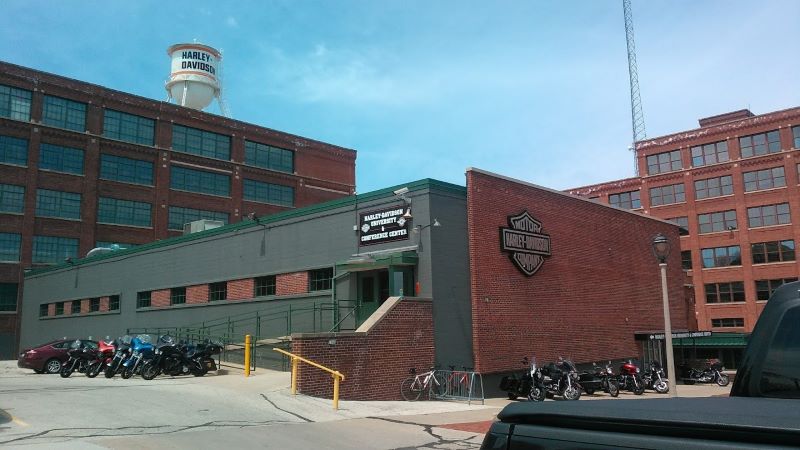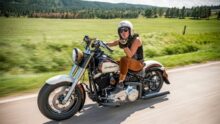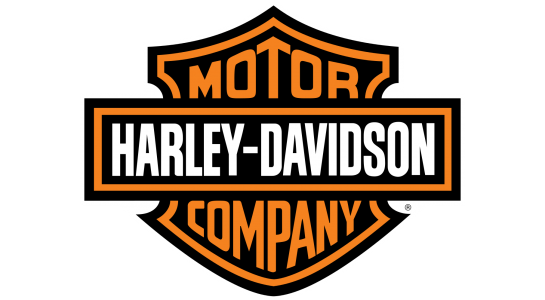Harley-Davidson shareholders approve new direction amidst tension with activist investor
Harley-Davidson Inc. charted a new course at its annual shareholders’ meeting on Tuesday, May 14, approving a series of transformative initiatives to revitalize the iconic motorcycle brand. Despite overwhelming shareholder support for the board’s proposed strategy, the meeting was not without drama, as activist investor H Partners continued its campaign against the company’s current leadership.

A new vision
At the core of the shareholder vote was a sweeping restructuring plan designed to push Harley-Davidson into the future. The company is betting on electric motorcycles, a broader product lineup for younger and more diverse riders, and expanded global market penetration, particularly in Asia. Key elements of the plan include:
- Significant investment in electric motorcycles: Harley-Davidson is doubling its investment in the LiveWire brand, even though the division only sold 33 units in Q1. The company aims to lead the charge in the electric motorcycle market with new high-performance models and enhanced manufacturing capacity.
- Product revamp to attract younger riders: The company plans to introduce more affordable, customizable models that cater to urban commuters and explore alternative fuel options. It will also rejoin the entry-level market in the near future.
- Expansion in global markets: Harley-Davidson is focusing on increasing its presence in emerging economies, particularly in Asia, where motorcycle ownership is on the rise.
- Enhanced shareholder returns: Along with the strategic pivot, Harley-Davidson plans to increase its dividend payouts and implement stock buybacks to appease investors during this period of transformation.
H Partners’ opposition
Despite the board’s vision for a bold future, not all shareholders were on board. H Partners, a prominent activist hedge fund with a significant stake in Harley-Davidson, campaigned vigorously against the board’s proposal and urged shareholders to vote against re-electing current board members.

In an open letter to investors, H Partners criticized the company’s current leadership for a “lack of accountability” and a failure to deliver results in recent years. The firm, which has been an outspoken critic of Harley-Davidson’s strategic direction, argued that the company’s current management was too focused on expanding into new markets and electric motorcycles, rather than strengthening its core business and returning to its roots as a premium brand for motorcycle enthusiasts.
“Harnessing the power of electric vehicles is important, but the future of Harley-Davidson lies in its heritage,” said H Partners’ managing director, Jason Smith, during a press conference ahead of the vote. “The board’s focus on diversifying the brand and chasing after younger riders risks alienating the very loyal customers who have built this company into a global icon. We believe Harley-Davidson needs to double down on its traditional strengths — craftsmanship, quality, and the unique American spirit that has defined the brand for over a century.”
H Partners also accused the board of failing to address key performance issues, including declining sales in North America, an aging customer base, and poor financial performance relative to peers in the motorcycle industry. The hedge fund suggested that a fresh board with more experience in operational efficiency and brand management was necessary for Harley-Davidson’s recovery.
The board’s defense
In response, Harley-Davidson’s leadership doubled down on its commitment to change. CEO Jochen Zeitz, who took the helm in 2020 and has since been credited with steering the company toward a more sustainable, innovative future, defended the restructuring strategy and its focus on adapting to a changing market.
“While we deeply respect the opinions of all our shareholders, it’s clear that the road ahead requires a fundamental shift,” Zeitz said in his remarks following the vote. “The world is changing — consumers are changing, and our brand needs to evolve. We’re committed to preserving the essence of Harley-Davidson while embracing new opportunities for growth and sustainability.”
Zeitz emphasized that the company would continue to engage with its core customers while also expanding its appeal to new generations of riders, noting that the company had already made strides in improving quality and customer satisfaction.
Clear mandate
Despite H Partners’ vocal opposition, the board’s proposed changes were approved by a substantial majority of shareholders, with 82% voting in favor of the new strategic direction. However, the result wasn’t unanimous, and H Partners has made it clear that they will continue to challenge the board’s decisions moving forward.
While H Partners did not succeed in their bid to oust any board members at this meeting, the hedge fund has hinted at further efforts to push for change, suggesting that they may rally additional shareholders for future votes.
Looking forward
While Harley-Davidson’s board and management team are celebrating their victory, the company’s future remains uncertain. The motorcycle industry is undergoing a seismic shift, and Harley-Davidson’s transition into electric motorcycles and its efforts to capture younger, more diverse riders will likely face significant challenges.
The rise of electric vehicles presents both an opportunity and a risk. While it could unlock new growth markets, it also threatens to dilute Harley-Davidson’s iconic identity as a maker of rumbling V-Twin cruisers and heavyweight touring bikes. The question remains whether the brand can successfully balance its storied history with the demands of a changing world.
As the company moves ahead with its ambitious plans, all eyes will be on Harley-Davidson’s performance over the next few quarters.







For starters getting a bike for 10 grand in my opinion will help get the younger generation on board. Second Covid ordeal is over, they got cures, get those damn people up in the office back to work, no more work at home including president, vp , whatever get these people out in the field I worked Harley 25 years. I know what goes on. I was there during Covid. Thank You
They sold 33 battery bikes, yet they plan to continue to throw money down that drain. Obviously, the board hasn’t been seeing what a blind person could see. Battery bikes aren’t what the Harley rider wants. They need to attract a younger demographic, and battery bikes aren’t going to do it. They need to do something like they did years ago, when you could buy an 883, and get 100% of the purchase price back on a big twin within a year or whatever it was. Get the dealerships to work on bikes older than ten years. I don’t know if they have done so, but I haven’t seen any customer surveys. They obviously aren’t listening to their base. Following the Zeitz playbook isn’t going to get them anywhere.
Clearly HD board and CEO are blind, how do you celebrate wins when you sales are down 25%?. You have angered your biggest customer base, yes they are aging but right now are your lifeline. As usual to corporate America, CEO’s will show up destroy brand and business, be given a fat golden parachute. Then move on to the next company to destroy.
“Younger generation” by means of other models has been tried and failed each time
Example the Aermacci fiasco in the ’70s. HD can survive only as the “alpha male” of the mc business. Others have done the “start young” strategy a lot longer and a little more successfully. You’re not going to beat them at their own game at this late stage. Stick with your legacy, at which you excel.
I think part of the problem is they are too worried about holding on to the “old traditional” Harley image. They need to have a beginner bike, and become more of a “full line” company. The Pan America is a good start for the Adventure market. Now something in the street category like a naked or sport bike. The BRONX perhaps???? They need to divest. Keep the traditional, but branch out. And give the electric time! I like Harley, but I’m more of a “non traditional” Harley rider. I own a 06 Street Rod edition, and I just bought a Livewire S2 Mulholland last fall. I love both! But I’m just not into a big touring bike. I like a smaller more nimble bike. I would buy something like the Bronx in a second! The other problem is that people complain they don’t change or innovate. But when they do, everyone screams they are forgetting their core demographic! It can be both! But the dealers need to not try to push people towards the “traditional” stuff if that’s not what they want. I got lucky in that my dealer knew it was a Livewire or nothing, so they didn’t try to push me away from it. There needs to be change, but in many ways if they are going to survive.
This is going to be a total disaster for HD. The most iconic motorcycle company in the world has continued into the darkness of wokeness….. Am a proud HD owner, stock holder and enthusiast. But, like many I am quickly becoming disheartened with this company!! I am seriously looking into Indian although I know they have tilted towards the woke they haven’t totally SOLD OUT their customer base. HART BREAKING what HD has become.
Dude, what is it with your “woke” BS. Riding isn’t about politics is it? You and HD need to wake up or your stocks are going to be worthless.
Wake up and keep up with current wants and needs of customers or bye bye
Do you even know what being WOKE means? Do you know how much a damn HD cost now? My first HD was $19k Street Glide and it was bone stock. My second was $25k Road Glide and my third was $36k RG Ultra! I looked at a new RG the other day and it was in the mid $30k!! In this economy? Ain’t no way! HD is failing because their prices are too much for the average person to afford. It has nothing to do with being WOKE! Y’all killing me with that fake trope and you have no idea what it means! Oh by the way….I am a black FEMALE!!
Go woke, go broke; and Harley is well on its way. Huddle with me because here is the plan: Nicole will keep the company alive a little longer with high-end tourer purchases and at the same time keep the board and executives complacent and off-guard by saying she doesn’t know what woke is and telling everyone that they don’t know what it means; meanwhile H-partners and the rest of us can plan for the next shareholder meeting (if H-D can make it to the next shareholder meeting without going bankrupt).
Ready-BREAK!
Yes getting a bike that is less expensive to someone that wants to comute to work needs to a brought out now. Don’t take away the crome for us guys that like to shine up our bikes. Management come out to the dealerships on a Saturday and learn what the loyal customer want’s to purchase and why….. I agree bring the office back to work. Make the clothing more afordable for the younger buyers. Prices are getting to expensive.
Plain stupid to keep pushing the electric bike, this is a temporary fad and nothing more. These woke board of directors need to get out in the real world and see what’s going on!
That 883 was their entry level that was a good price, reliable, a hot seller and had a loyal HD following. They killed it because of Europe emissions. The replacement the liquid rev whatever seems to not sell. Send that one to Europe and bring back a more traditional sportster. also the Standards used to do pretty well. They make too many CVO’s and not enough regular bikes.
I thought they were moving to Italy anyway, weren’t they? Italy has its own stock market.
They’ll keep their LiveWire project in Milwaukie, Ducati doesn’t have a battery-operated bike and apparently doesn’t see a market there either.